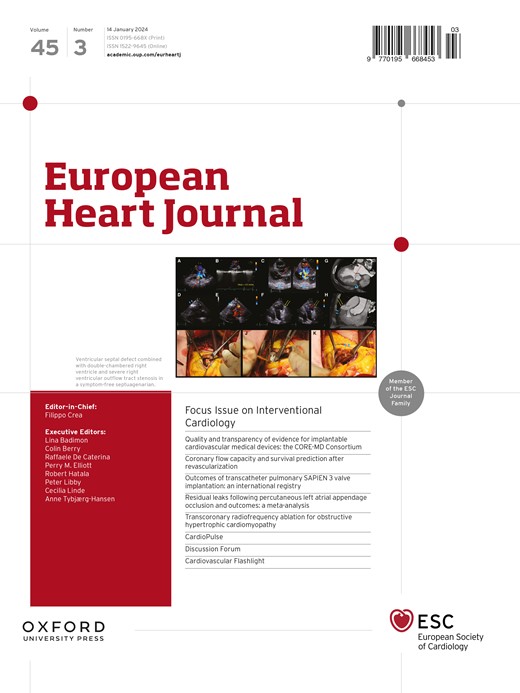异基因粪便微生物群移植(FMT)对代谢综合征(MetS)患者血脂参数的影响:一项荟萃分析
IF 37.6
1区 医学
Q1 CARDIAC & CARDIOVASCULAR SYSTEMS
引用次数: 0
摘要
背景代谢综合征(MetS)长期以来一直被认为是一个严重的全球健康问题,而脂质代谢受损则是其重要的临床表现之一。粪便微生物群移植(FMT)已成为一种潜在的 MetS 治疗策略,然而,之前的荟萃分析不仅得出了相互矛盾的结果,而且主要集中在血糖参数上,FMT 对脂质代谢的潜在影响仍未得到探讨。目的 本荟萃分析系统评估了异基因 FMT 对 MetS 患者血脂参数的影响,揭示其作为 MetS 创新治疗方法的潜力。方法 通过荟萃分析探讨异基因 FMT 对 MetS 患者血脂参数(低密度脂蛋白胆固醇 [LDL-C]、高密度脂蛋白胆固醇 [HDL-C]、总胆固醇 [TCHO] 和甘油三酯 [TG])的影响。在 PubMed/Medline、EMBASE、Web of Science、Cochrane Library 和 Scopus 中检索了有关 FMT 和代谢综合征的术语,检索时间从数据库建立之初开始,直至 2023 年 8 月 31 日。共纳入了十项随机对照试验(RCT),并采用固定效应模型对参数的平均差(MD)进行了汇总。根据随访时间进行了分组分析,本研究已在 PROSPERO 上注册。结果 共纳入了 10 项研究中的 532 例患者。与对照组(接受安慰剂或自体 FMT,汇总 MD 0.06 [95% CI:0.02, 0.10])相比,接受异基因 FMT 的患者 HDL-c 水平明显升高,在随访 4 至 6 周的亚组中,结果保持一致(MD 0.07 [95% CI:0.02, 0.10])。虽然总体汇总结果并未显示出显著的降低低密度脂蛋白效果(MD -0.08 [95% CI:-0.21, 0.05]),但在亚组分析中,随访 12 周时观察到低密度脂蛋白水平显著降低(MD -0.34 [95% CI:-0.60, -0.08])。无论随访时间长短,异基因 FMT 组和对照组在 TCHO ant TG 水平方面均无明显差异。结论 接受异基因 FMT 治疗的 MetS 患者在随访 12 周时,HDL-C 水平总体较高,LDL-C 水平较低。结果表明,来自健康瘦弱供体的肠道微生物群可能会对 MetS 患者的脂质代谢产生有益的调节作用。异基因 FMT 具有良好的治疗效果,可作为 MetS 患者的可行干预措施。未来还需要进行大规模的临床试验来进一步验证。本文章由计算机程序翻译,如有差异,请以英文原文为准。
Impact of allogenic Fecal Microbiota Transplantation (FMT) on lipid parameters in patients with metabolic syndrome (MetS): a meta-analysis
Background Metabolic Syndrome (MetS) has long been considered a formidable global health concern, and impaired lipid metabolism has been one of its crucial clinical manifestations. Fecal Microbiota Transplantation (FMT) has emerged as a potential therapeutic strategy for MetS, nevertheless, prior meta-analyses have not only yielded conflicting outcomes, but as well predominantly centered on glycemic parameters, leaving the potential impact of FMT on lipid metabolism remained unexplored. Purpose This meta-analysis systematically assessed the influence of allogenic FMT on lipid parameters in MetS patients, unraveling its potential as an innovative therapeutic modality for MetS. Methods A meta-analysis was performed to explore the impact of allogenic FMT on lipid parameters (low-density lipoprotein cholesterol [LDL-C], high-density lipoprotein cholesterol [HDL-C], total cholesterol [TCHO] and triglycerides [TG]) in patients with MetS. Terms regarding FMT and metabolic syndrome were searched in PubMed/Medline, EMBASE, Web of Science, the Cochrane Library, and Scopus from the inception of the databases until 31 August 2023. Ten randomized controlled trials (RCTs) were included and mean difference (MD) of parameters were pooled using a fixed effects model. Subgroup analyses according to follow-up durations were performed, and this study was registered in PROSPERO. Results A total of 532 patients in 10 studies were included. Patients undergoing allogenic FMT manifested significantly higher HDL-c level compared with control group (receiving placebo or autologous FMT, pooled MD 0.06 [95% CI: 0.02, 0.10]), and the result remained consistent in the subgroup with 4 to 6 weeks of follow-up (MD 0.07 [95% CI: 0.02, 0.10]). Though overall pooled result did not manifest a significant LDL lowering effect (MD -0.08 [95% CI: -0.21, 0.05]), in subgroup analyses, a significantly lowered LDL level was observed at 12 weeks of follow-up (MD -0.34 [95% CI: -0.60, -0.08]). No significant difference was observed between allogenic FMT and control group concerning TCHO ant TG levels regardless of lengths of follow-up. Conclusions An overall higher level of HDL-C and lowered LDL-C at 12 weeks of follow-up was observed in MetS patients receiving allogenic FMT. The results indicated that gut microbiota from lean, healthy donors may display a beneficial effect on modulating lipid metabolism in patients with MetS. Allogenic FMT manifested promising therapeutic impact and could serve as a viable intervention for MetS patients. Future large-scale RCTs are required for further validation.
求助全文
通过发布文献求助,成功后即可免费获取论文全文。
去求助
来源期刊

European Heart Journal
医学-心血管系统
CiteScore
39.30
自引率
6.90%
发文量
3942
审稿时长
1 months
期刊介绍:
The European Heart Journal is a renowned international journal that focuses on cardiovascular medicine. It is published weekly and is the official journal of the European Society of Cardiology. This peer-reviewed journal is committed to publishing high-quality clinical and scientific material pertaining to all aspects of cardiovascular medicine. It covers a diverse range of topics including research findings, technical evaluations, and reviews. Moreover, the journal serves as a platform for the exchange of information and discussions on various aspects of cardiovascular medicine, including educational matters.
In addition to original papers on cardiovascular medicine and surgery, the European Heart Journal also presents reviews, clinical perspectives, ESC Guidelines, and editorial articles that highlight recent advancements in cardiology. Additionally, the journal actively encourages readers to share their thoughts and opinions through correspondence.
 求助内容:
求助内容: 应助结果提醒方式:
应助结果提醒方式:


